Reviews
David Redmon and Ashley Sabin
USA, 2009
Credits
Review by Katherine Follett
Posted on 11 May 2009
Source projected DVD
Categories The 2009 Independent Film Festival of Boston
Mental illness can bring a certain sort of tension. On the one hand, cognitive and emotional disorders can cripple one’s life. But on the other hand, the twisted chemistry of a mental illness can sometimes bring a unique and compelling perspective, like a long-term drug trip, that blurs the line between eccentricity, genius, and insanity.
Though Charles was diagnosed both bipolar and schizophrenic, he decided to stop taking his medication. His salvation and sanity is now Joanie, the invisible girlfriend of the title. Joanie is actually the spirit of Joan of Arc, whom Charles communicates with mostly through her statue in New Orleans. Charles also suspects that Joanie’s spirit may reside in a kind bartender he befriended in the same city. Having lost his driver’s license to a DUI, Charles decides to bicycle the 400 miles from his parents’ home in northern Louisiana, where he lives with his children, down to New Orleans. Documentarians David Redmon and Ashley Sabin traveled along for the ride.
Charles does not come across as noticeably mentally ill. Throughout the film, he is in turns philosophical, sardonic, pissed off, and jovial, but all in response to real events, events that would elicit such emotions from any healthy person. Even southern hospitality would keep an obviously mentally ill person at some sort of distance, but Charles is unfailingly articulate and charming to every person he meets along his route through the rural South. It also surely helps that by luck or by like-mindedness, the people whom Charles encounters (or maybe just the people who make it into the film) are also endearingly eccentric. There’s a man with a rotting, stranded riverboat in his back yard. There’s a couple with a little model tin man hanging on their front fence, and the wife believes witches run in her family. Charles has almost nothing with him besides his bicycle, clothing, and a few supplies, but families routinely offer to take him in and feed him, even after he describes just why he wants to get to New Orleans. It’s really only Joanie who could be described as a delusion, but even then, Joanie doesn’t resemble most other schizophrenic hallucinations—she doesn’t interrupt Charles’s speech or mental processes, she doesn’t affect his actions in irrational ways (unless you count the entire journey as irrational—and the journey seems to be much more about the bartender than it does about the statue). Charles claims that Joanie is his salvation, and perhaps he’s right. She seems less a hallucination and more the imaginary friend of a lonely child.
Being from the south himself, filmmaker David Redmon shoots his subjects very matter-of-factly, without the anthropological remove many coastal filmmakers might bring to the project. And the subjects, too - Charles, his family, the people he meets - all seem remarkably un-self-conscious, without guile or apology for their oddness. It makes the film uncommonly intimate. Whether it is Charles or the filmmakers, something about this traveling group is immediately disarming, and the footage they manage to capture feels deeply real and raw. On a farm, a cow struggles bloodily to give breech birth, and the farmer discusses how she might have to be euthanized. The man with the riverboat openly acknowledges that his little dog is basically his only companion. And once in New Orleans, Charles confronts an astonishing and devastating heartbreak with both sadness and a grim determination to keep looking for his invisible muse. In a world with so much pain, sadness, and death, who can fault a person for taking comfort in the companionship of a woman who doesn’t physically exist, especially if he never actually seems to mistake her for a real, living person? Invisible Girlfriend, and Charles himself, show that mental illness - if indeed that’s what Charles can be said to have - may only be a continuum of the coping mechanisms we all use.
More The 2009 Independent Film Festival of Boston
-

Johnny Cash at Folsom Prison
2008 -

I Need That Record!
2008 -

Children of Invention
2009 -
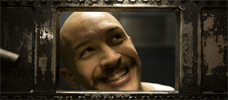
Bronson
2009 -

Trimpin
2009 -

Invisible Girlfriend
2009 -

500 Days of Summer
2009 -
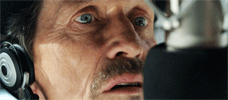
Pontypool
2008 -

Children of Invention
2009 -

Unmistaken Child
2008 -
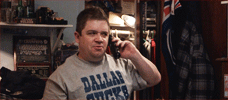
Big Fan
2009 -

World’s Greatest Dad
2009 -
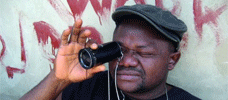
Nollywood Babylon
2008 -
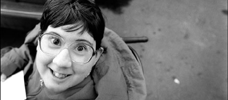
Shooting Beauty
2009 -

I Knew It Was You
2009 -
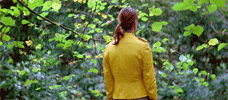
Helen
2008 -

Prom Night in Mississippi
2008 -
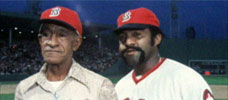
The Lost Son of Havana
2009 -

Mine
2009 -

Stingray Sam
2009
We don’t do comments anymore, but you may contact us here or find us on Twitter or Facebook.



